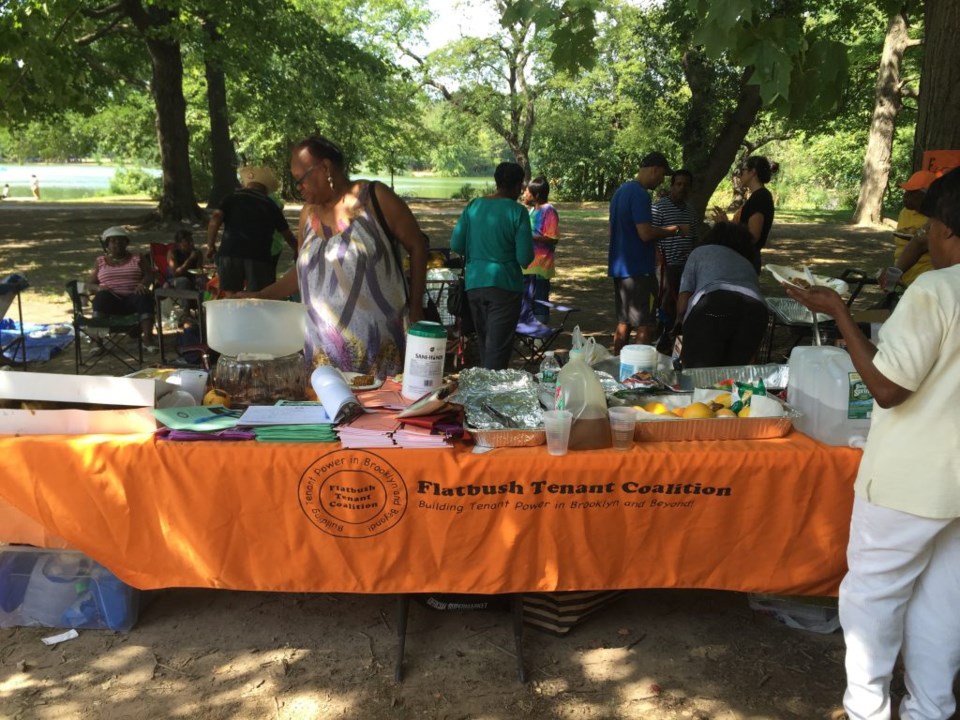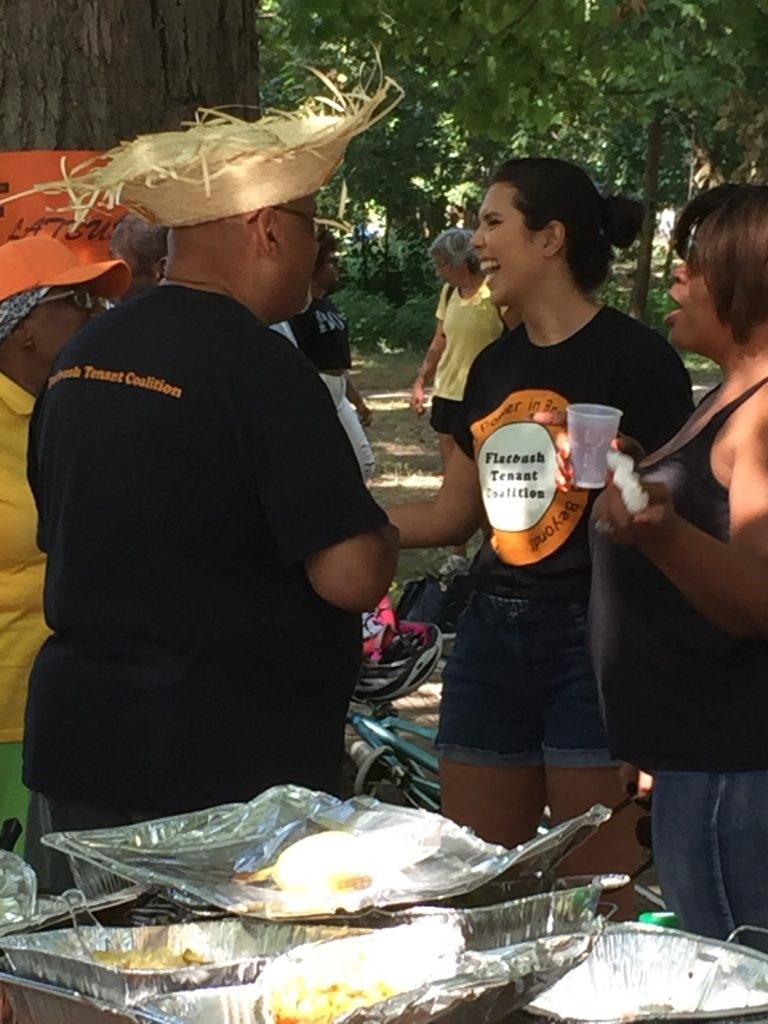
On Saturday, August 27, members of the Flatbush Tenant Coalition gathered for their second annual Cookout in Prospect Park.
The Flatbush Tenant Coalition (FTC), an initiative of the Flatbush Development Corporation, is a collective of tenant associations working across Flatbush, East Flatbush and South Crown Heights. The primary focus of the coalition is to educate and to organize-- an endeavor achieved by sharing experiences, providing peer mentorship and offering comprehensible explanations of tenant's rights.
Since 2010, FTC has successfully organized tenant associations, assigned tenant leaders and ensured amicable relations between tenants and landlords. Beginning with a group of aggrieved tenants demanding vital repairs for their apartments, the coalition has increased in size and force.
[perfectpullquote align="left" cite="" link="" color="" class="" size=""]"People see our faces and know we are working for them."[/perfectpullquote]
"It's grown tremendously, and we've had tremendous success," said Thomas Williams, FTC advocate and founding member. "We started with just a few members, and now there are about 60 or 70 regular members." Some Saturday morning meetings, he recalls, there are upwards of 200 people in attendance.
Broken elevators, holes in floors, water damage, and infestations problems endemic across New York are the complaints that continually attract new members.
"We have people coming from as far as the Bronx," remarked Valerie Coley. "People see our faces and know we are working for them." And FTC is always working, knocking on doors, posting flyers, picketing, and managing a steady web presence.

While the work FTC does is extensive, landlords appear to be the mainstay, with charges of discrimination, harassment, illicit rent hikes and withheld repairs. Many members report nearly identical accounts of landlords' tactics with the colloquially named "eviction bonus," a method by which a landlord raises the rent 20 percent after vacating rent-regulated apartments, and by installing Major Capital Improvements.
Major Capital Improvement or MCIs are rent increases in rent-stabilized apartments that pay for repairs and improvements. However, even after the repairs are completed, the increase in payment remains. Viewed as yet another way for landlords to harass tenants, the dissolution of MCIs has been an ongoing campaign for the coalition.
Longtime coalition member Tammy Brake says her building typifies the inequity of NYC rent laws, "We just won a rent reduction, but it isn't of any value because it coincided perfectly with the MCI," Tammy reflected. "Even though the rent is stabilized, we're actually paying more because of the MCI, and more MCIs are coming for new elevators."
In addition to fighting unscrupulous landlords, FTC introduces tenants to pro bono lawyers, and advocates to local lawmakers.

"We even have lawyers here today." Mr. Williams said with a chuckle. FTC works closely with Brooklyn Legal Services, and maintains a close affiliation with public advocate Letitia James, whose notable Worst Landlord List ranks many members' landlords in the top ten.
Among their recent achievements, Williams notes two of significance: "We just had a new elevator put in my building, and we had another tenant with holes in her ceiling and her floor— she could see from her basement to the third floor."
For this particular tenant, FTC brought in a camera crew to document the damage and publicly report the landlord.
Yet even with such definite results, the problems never cease, with an ongoing plea with lawmakers to increase the number of rent-stabilized apartments across Brooklyn, to preserving affordable housing. The most important work, all members agree, is educating tenants, particularly immigrants who are new to the city and don't know their rights.
"We don't want the system taking advantage of them," Williams asserted.
For tenants with similar problems, FTC meets regularly, with upcoming events posted on their website and Facebook page.




